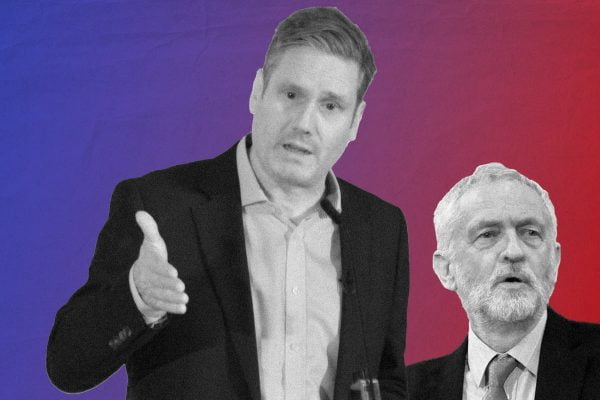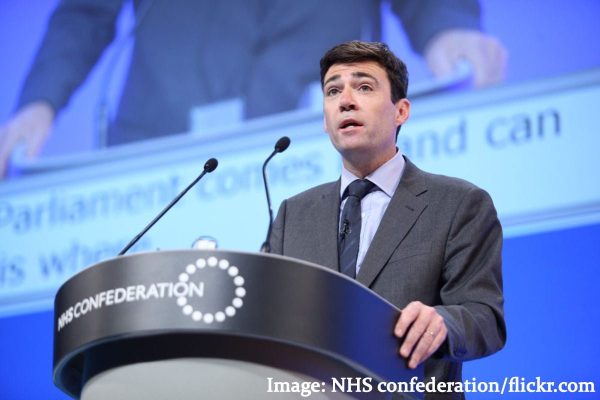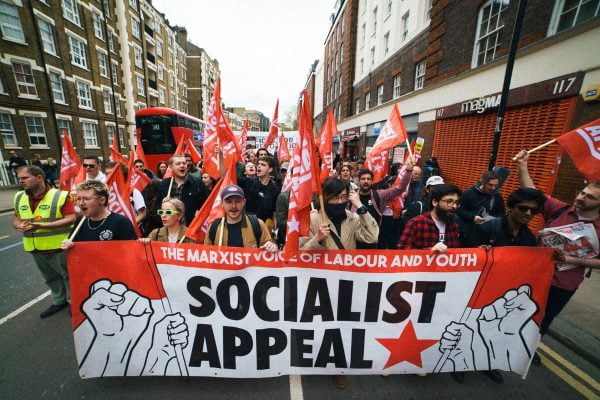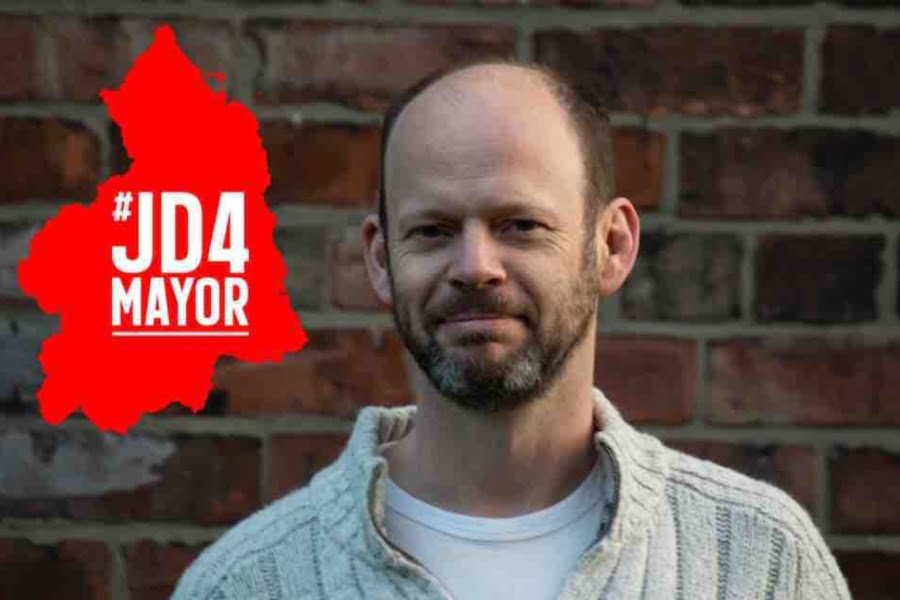Earlier this week, on 3 June, current North of Tyne Mayor Jamie Driscoll announced that he had been barred by the Labour Party from running as Mayor of the North East.
This is a newly-created and devolved position, which would extend the authority of the current Mayor to other areas of Tyneside.
Driscoll was elected on a left slate in 2019. In recent years, he has been described by some as “the last Corbynista in power” – a label that he has distanced himself from.
In preventing Driscoll from standing to be North East Mayor, Starmer is sending another clear signal to the establishment: the Corbyn era is a distant past; Labour is once again a safe pair of hands for capitalism.
‘Winning elections’
 The reasons given by the Labour bureaucracy for blocking Driscoll have been spurious.
The reasons given by the Labour bureaucracy for blocking Driscoll have been spurious.
Early statements suggested that this draconian move was necessary for the party to “win elections”.
Incidentally, this was the same excuse given recently by Starmer and the NEC in relation to their decision not to let Jeremy Corbyn stand as a Labour candidate in Islington North.
In both cases, from the perspective of increasing Labour’s chances of winning, we must ask: is circumventing the wishes of local party members, and preventing a proven democratically-elected candidate from running, not extremely counterproductive?
Whatsmore, the need to ‘win elections’ clearly did not stop many Blairites and bureaucrats from actively sabotaging Labour’s general election campaign in 2017; or from revelling in the party’s 2019 election defeat
It is safe to say that the party’s motives for barring Driscoll and Corbyn are not based on calculated pragmatism.
Weaponising antisemitism
The Labour spin machine has also been quick to draw attention to an instance when Driscoll appeared alongside left-wing film director Ken Loach in Newcastle earlier this year.
Loach, a lifelong socialist, was expelled from the Labour Party in August 2021 for alleged anti-semitism. In turn, those defending the bureaucracy’s latest decision have argued that Driscoll is guilty by association.
Labour NEC member – and notorious right-winger – Luke Akehurst has suggested that anyone that has shared a platform with Ken Loach should be subject to investigation.
Not only are such McCarthyite methods scandalous, but they are laughable too. After all, Labour leader Keir Starmer, whom Akehurst is an ardent supporter of, has also been on a panel with Loach in the past.
This is only the latest in a long line of instances of the Labour right wing weaponising antisemitism in order to attack the left.
Driscoll joins other recent victims of this hysterical smear campaign, such as Diane Abbott, who was suspended from the Parliamentary Labour Party back in April, after being hypocritically accused of racism by Starmer and co.
From condemning Black Lives Matter protestors, to mimicking the Tories’ dog-whistle racism against migrants: the Labour right wing have shown on countless occasions that they don’t give a damn about fighting racism – only about fighting the left.
Ultimately, we must see this cynical use of identity politics by Starmer and his supporters for what it is: a battering ram to be used against the left, whenever and wherever this is deemed politically expedient.
Opportunistic opposition
 The decision to prevent Jamie Driscoll from standing has not come without opposition. Left-wing members and affiliated trade unions alike have denounced this latest affront.
The decision to prevent Jamie Driscoll from standing has not come without opposition. Left-wing members and affiliated trade unions alike have denounced this latest affront.
Mayor of Greater Manchester Andy Burnham has been one of the most vocal figures in condemning the Labour Party’s treatment of Driscoll.
Since Starmer rose to power, Burnham has utilised his relatively safe position – as a metropolitan mayor – to occasionally vent mild opposition to the party’s leadership, and to the Tories.
But whilst he may deploy a defiant tone at times, and promote himself as an ally of grassroots activists, Burnham’s long-term record shows that he is not a true friend of the left.
Certain trade union leaders have helped him cultivate this image over the years, with Unite and Unison initially backing Burnham in his 2015 bid to lead the party. The realities of his career, however, tell a different story.
When standing in the 2010 Labour leadership election, for example, he praised New Labour – applauding Blair and Blairism for being “pro-business” and “tough on crime”, and standing by his support for the Iraq War.
Most likely, the Manchester Mayor is putting in work now so that he can position himself as a ‘unity’ candidate in a future leadership contest.
Left-wingers should therefore be sceptical of Burnham’s support for Driscoll: more a case of personal opportunism than of genuine opposition to Starmer and the right wing.
‘Factionalism’
More proven left figures within the party have also expressed support for Driscoll.
Former shadow chancellor and Socialist Campaign Group (SCG) member John McDonnell, for example, has accused the Labour leadership of fomenting ‘factionalism’ by blocking Driscoll.
“To refuse to allow a serving Mayor onto even a selection long list,” the left Labour MP stated, “demonstrates that factionalism in the party is completely out of control.”
The existence of ‘factionalism’ in the Labour Party is no great revelation, however. The Blairite faction have been actively waging war on the left ever since Corbyn was elected as leader in 2015.
The problem is that those in charge of the ‘left’ faction never put up any real resistance. Instead, they repeatedly – and mistakenly – called for unity with these backstabbers and saboteurs, when they should have been organising activists to democratically drive them out.
Revolutionary leadership
 Driscoll has correctly argued that it should be Labour members in the North East who decide whether or not he is a suitable candidate.
Driscoll has correctly argued that it should be Labour members in the North East who decide whether or not he is a suitable candidate.
The Labour membership in the region today, however, is far different in composition to that which mobilised to elect Driscoll in 2019.
Many of the most dedicated members have been purged from the party on trumped-up allegations. Others have left of their own accord, demoralised and disgusted by the direction that Labour has taken under Starmer.
It is likely, therefore, that the North East mayoral position will go to Kim McGuinness, the current North East Police and Crime Commissioner, who will be standing as the Labour bureaucracy’s preferred candidate.
It is possible that Driscoll – or another candidate – could look to tap into the mood of dissatisfaction and anger that exists amongst workers and youth in the region, by presenting themselves as a left-of-Labour alternative.
But as with the suggestion that Corbyn could stand as an independent in Islington North, this fails to address the key questions and problems that have led the left to this juncture.
Above all, have the left leaders fully absorbed the lessons of the Corbyn years? That is, the lesson that weakness invites aggression; that there can be no compromise with the agents of capitalism inside the labour movement; and that activists must be mobilised around bold socialist policies to clear out the right wing.
This latest episode, therefore, highlights once again the need for revolutionary leadership – one that is willing to make a decisive break with the limits of reformism, and fight the struggle to the end.






